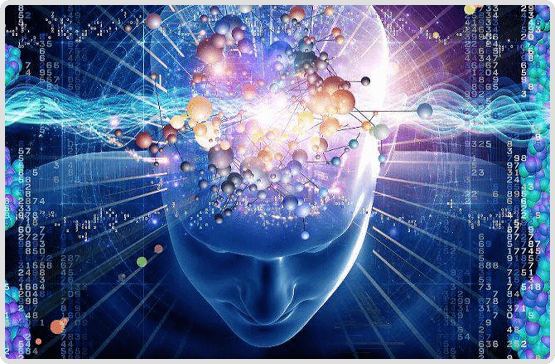
Introduction to the Unconscious
At Goldberg & Associates, we have embarked on an extensive meta-analysis of the scientific literature pertaining to the unconscious mind. Our motivation for this comprehensive review is twofold. Firstly, we acknowledge the unconscious mind as an essential component of human psychology, central to understanding a wide range of behaviors and mental processes. Secondly, and crucially, we recognize a significant gap in parental alienation theory – its failure to integrate this substantial body of research when accounting for child and adolescent behavior.
The scientific excerpts included in this section of our website, though not exhaustive, represent a synthesis of both historical references and the most contemporary findings. These insights are drawn from hundreds of scientific studies, reflecting a broad spectrum of perspectives and research methodologies. Our intention is not to provide a complete encapsulation of all the research in this field; such an endeavor would be beyond the scope of this platform. Instead, we aim to highlight key concepts and discoveries that have shaped our understanding of the unconscious mind.
We invite the reader to consider the relevancy of these excerpts, especially in the context of a child’s rejecting behavior towards a parent. These findings could serve as potential situational factors, offering valuable insights for a differential diagnosis. In the intricate and often challenging cases of parental alienation, understanding the role of unconscious processes can be instrumental in deciphering the complex dynamics at play. By incorporating these scientific insights into our understanding, we hope to foster a more nuanced and comprehensive approach to addressing and resolving these sensitive family dynamics.
The Scientific Research
Sigmund Freud (1923): Freud’s theories, once revolutionary, have faced substantial criticism in contemporary psychology. His emphasis on childhood experiences and sexual impulses as primary drivers of behavior is now considered overly deterministic and lacking empirical support. Moreover, Freud’s methods lacked scientific rigor, and many of his concepts are viewed as untestable, leading to a decline in the acceptance of his theories in modern psychology.
Solms and Friston (2017): Solms and Friston are credited with developing the Predictive Mind Theory. This theory posits that the brain is essentially a prediction machine, constantly generating hypotheses about the world based on past experiences. It suggests that consciousness arises as a byproduct of error correction in these predictions, with the unconscious mind playing a pivotal role in this process.
Ayan, S. (2018): In his article “The Brain’s Autopilot Mechanism Steers Consciousness,” Ayan emphasizes how the unconscious mind exerts a significant influence on our behavior. He argues that much of our daily functioning is governed by an ‘autopilot mechanism,’ which operates outside our conscious awareness, shaping decisions and actions.
Mobbs et al. (2015): This team focused on the concept of a “Survival Optimization System (SOS).” This system refers to the brain’s innate mechanism for prioritizing survival. It encompasses processes like threat detection and response, utilizing both conscious and unconscious resources to optimize survival chances in different environments.
Chartbrand, T.L. & Bargh, J.A. (1999): They defined the “Chameleon Effect” as the unconscious mimicry of one person by another, which often facilitates social interaction. Their research illuminated how much of our social behavior is automatic and driven by unconscious processes, significantly contributing to our understanding of unconscious behavior in social contexts.
Gillebaart, M. (2018): Gillebaart highlighted the profound impact of automatic behavior on both desired and undesired actions. She stated, “Automatic behavior has the largest effect on desired and undesired behavior,” underscoring the significant role of the unconscious in everyday decision-making and actions.
Baumeister & Heatherton (1996): Their research found that glucose depletion and fatigue affect the nervous system’s capacity for survival intelligence. This concept refers to the body’s ability to automatically regulate behaviour in response to physical states. They also explored “successive approximations,” a process where repeated behaviours gradually become more precise and eventually form muscle memory, illustrating how such automatic behaviours become embedded in our unconscious.
The application of these insights to parental alienation theory reveals significant gaps. Parental alienation theory, as proposed by Dr. Richard Gardner, includes factors arising within the child independent of parental contributions. However, the literature on parental alienation has largely overlooked the profound influence of the unconscious mind. This omission is critical, as understanding the unconscious processes at play could provide deeper insights into the child’s behaviour and the dynamics of parental alienation. The failure to consider these unconscious elements in parental alienation theory deserves strong repudiation, as it omits a fundamental aspect of human psychology that could be key to understanding and addressing this complex phenomenon.
In conclusion, the exploration of the unconscious mind in psychological research provides valuable insights into human behavior. However, the application of these findings to areas like parental alienation theory has been limited. Recognizing and integrating the role of the unconscious mind, could significantly enhance the understanding and motivation behind a child’s reasons to reject a parent.
Unconscious Mind Videos
Karl Friston – 2016 CCN Workshop: Predictive Coding
Karl Friston: The “Meta” Free Energy Principle
Karl Friston: Derealization, Consciousness Perils
Karl Friston: Is Reality Inferred?
What is ‘The Chameleon Effect’ in Borderline Personality Disorder?




